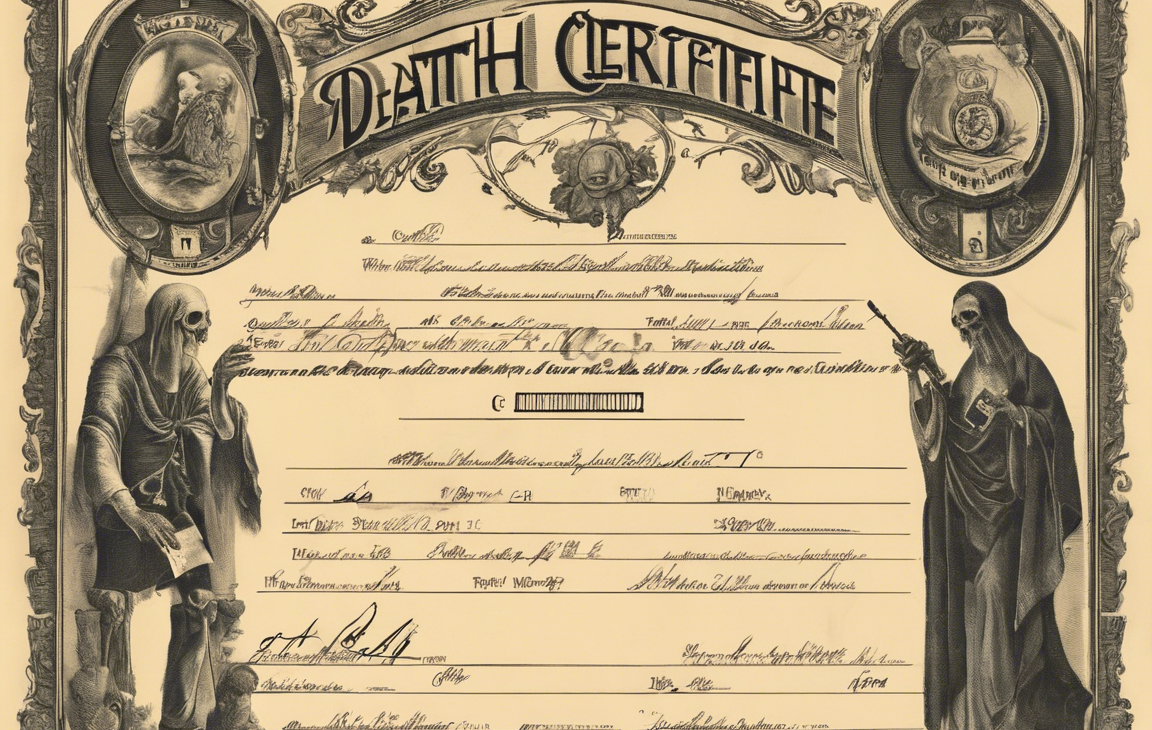Losing a loved one is a difficult and emotional experience, and handling the necessary paperwork and arrangements can often feel overwhelming. One crucial document that plays a significant role in the aftermath of a person’s passing is the death certificate. This legal document serves several important purposes, from providing official documentation of the death to assisting with the settlement of the deceased’s estate. Understanding the importance of a death certificate can help a grieving family navigate the practical aspects of their loss more effectively.
What is a Death Certificate?
A death certificate is an official document issued by the government to certify the death of an individual. It contains vital information about the deceased, such as their full name, date and place of birth, date and place of death, cause of death, and other pertinent details. This document is typically issued by the vital records office in the state where the death occurred and is considered a permanent record of the individual’s passing.
Why is a Death Certificate Important?
1. Legal Proof of Death
Perhaps the most critical function of a death certificate is to serve as official proof of death. This document is required for a variety of legal purposes, including settling the deceased’s estate, claiming life insurance benefits, and accessing certain government benefits. Without a death certificate, it can be challenging to finalize the deceased’s financial affairs and distribute their assets according to their wishes.
2. Cause of Death Documentation
The death certificate includes crucial information about the cause of death. This information can be important for medical research, public health, and genealogical purposes. Additionally, understanding the cause of death can provide closure for the deceased’s loved ones and help them better understand the circumstances surrounding the loss.
3. Estate Settlement
When a person passes away, their assets and property need to be distributed according to their wishes or state laws. A death certificate is essential for proving the death of the individual and facilitating the probate process. Executors of the deceased’s estate will need multiple copies of the death certificate to close bank accounts, transfer assets, sell property, and handle other financial matters.
4. Social Security Benefits
In the United States, the Social Security Administration requires a certified copy of the death certificate to process survivor benefits for the deceased person’s eligible family members. This document is necessary to determine eligibility and initiate the benefits promptly.
5. Finalizing Affairs
Aside from legal and financial considerations, a death certificate is often needed to cancel services and subscriptions that were in the deceased’s name, such as utilities, phone plans, and subscriptions. It also allows for the closure of social media accounts and provides notification to government agencies of the individual’s passing.
Obtaining a Death Certificate
To obtain a death certificate, the funeral director or person responsible for handling the deceased’s arrangements typically initiates the process. The funeral director will collect the necessary information from the family and submit it to the relevant authorities. Family members can also request copies of the death certificate directly from the vital records office in the state where the death occurred.
When requesting a death certificate, it’s important to provide accurate and complete information to ensure the document is issued promptly and without errors. The number of copies needed will depend on the deceased individual’s assets and obligations, so it’s advisable to request several copies to have on hand for various purposes.
Frequently Asked Questions (FAQs) about Death Certificates
- How long does it take to receive a death certificate after the death occurs?
-
The time frame can vary by state, but typically, death certificates are issued within 1 to 2 weeks after the death occurs.
-
Can a death certificate be amended if there are errors or new information that needs to be added?
-
Yes, it is possible to amend a death certificate if errors are discovered or if additional information needs to be included. The process for amending a death certificate varies by state.
-
Do I need a death certificate to cremate a loved one?
-
Yes, a death certificate is required before a loved one can be cremated. The funeral home or crematorium will usually handle the necessary paperwork.
-
How many copies of a death certificate should I request?
-
It’s advisable to request at least five to ten copies of the death certificate to have enough for various purposes, such as settling the estate, claiming benefits, and closing accounts.
-
Is a death certificate the same as a burial permit?
- No, a death certificate and a burial permit are different documents. A death certificate certifies the death of an individual, while a burial permit authorizes the burial or cremation of the deceased.
Understanding the importance of a death certificate and ensuring that you have the necessary copies can help streamline the process of handling the practical aspects of a loved one’s passing. By recognizing the various functions of this essential document, you can navigate the aftermath of loss with greater clarity and efficiency.







